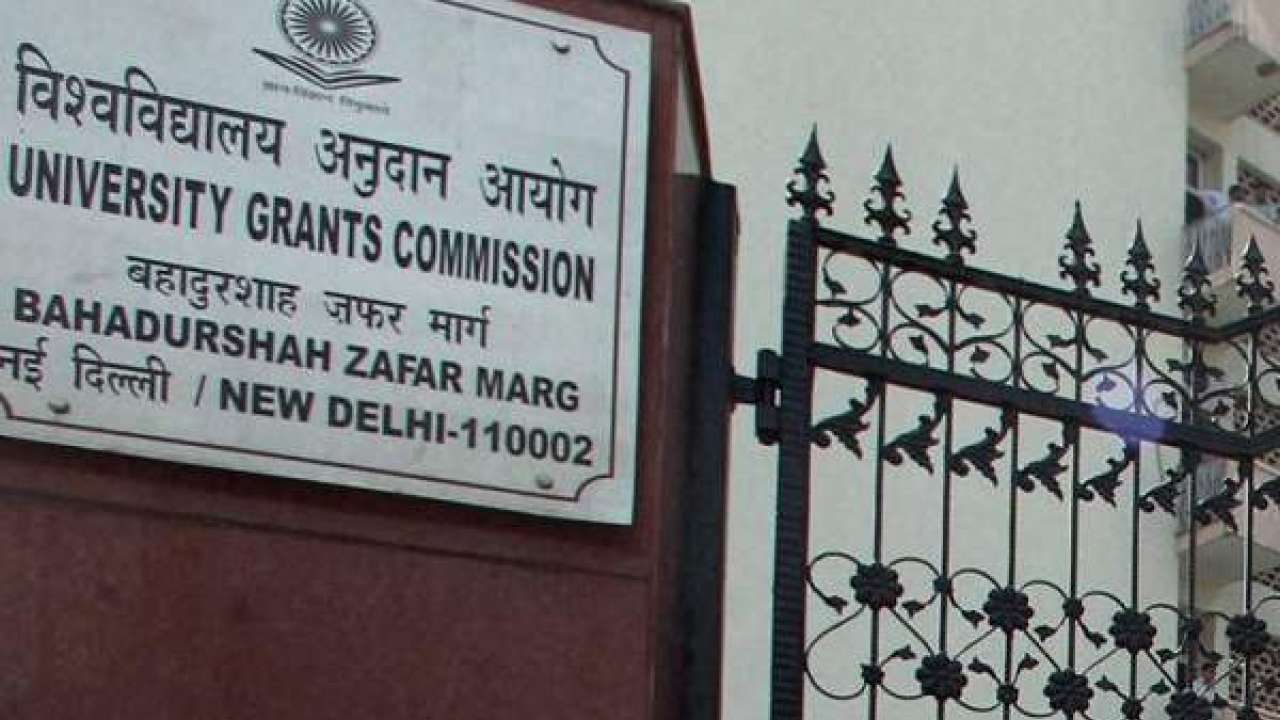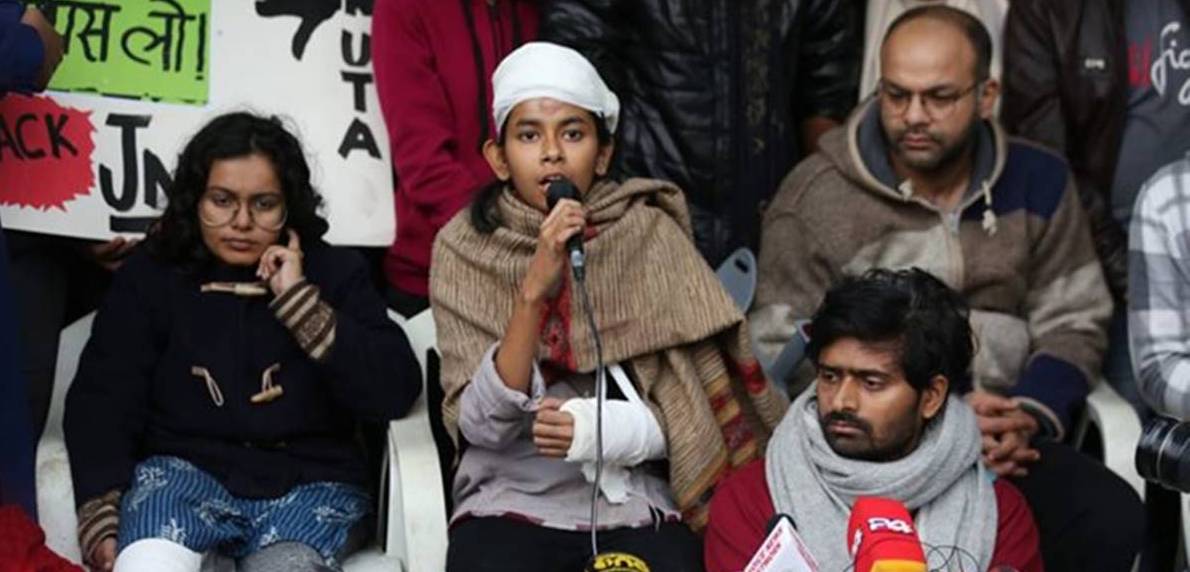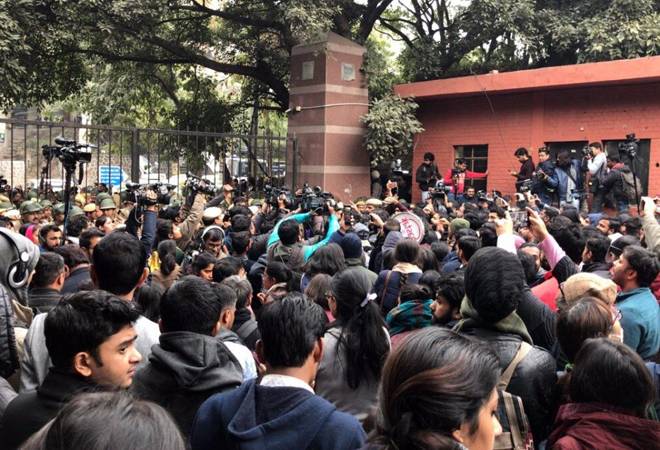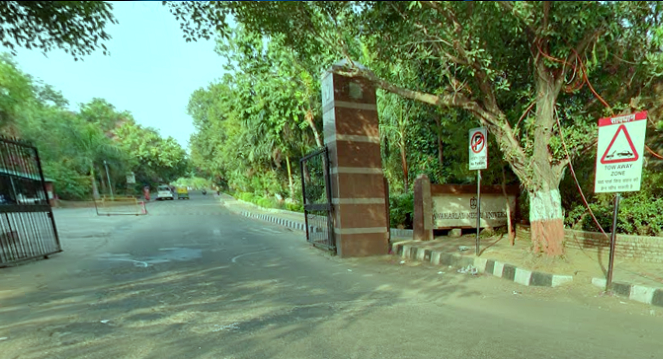A student named Rishi Joshua Thomas, from Centre for English Language, JNU committed suicide by hanging himself in the library’s reading room on 17th May, 2019. Here is an insider’s account of what it felt like to know of a fellow student’s mysterious demise.
It is already morning and I am not able to sleep. In no time he will be a ‘case’ for most of us, who are not related to him directly. We will forget his name. His case will of course be discussed while teaching and studying Durkheim’s notion of ‘Suicide’ and why shouldn’t it be. The email that he sent to his professor before taking his own life suggests that he wanted to experience the physical state of death. He also mentions the point that by the time his professor would have read the email, he would already have left the world. He requests his professor to look after his grieving parents.
Why was he in such a hurry? Why did he not talk to anyone about this? If he could mail someone, why did he choose not to discuss with them in person about his dilemmas and anxieties?
A little less than two years ago, another PhD scholar Ghanshyam died at the JNU campus. The news of his death shook me. I don’t know any of these students personally. But I had seen Ghanshyam a number of times. Ghanshyam was mentally disturbed and would discuss things with people around and was laughed at too behind his back.
He had ‘visible’ signs of mental illness. He would stand at a corner of one of the most popular eateries on campus and speak continuously for hours. His clothes torn, his hair unruly- he looked impoverished and abandoned.
When I saw him speaking non-stop on political issues and current affairs, it was a ‘normal’ affair for people sitting at the dhaba. I was shocked because it was the first time I saw him like that.
The fact that people considered it normal shook me further. How much has the institution alienated him? Later, I saw him a number of times. Students and teachers might be buying him food at times but was it enough?
Ghanshyam belonged to the institution. JNU administration should have taken steps to send him for treatment. Some students did think of it and they expressed it on the social media but it was too late.
JNU has a long history of tolerance and of freedom of speech and expression irrespective of caste, class, gender, religion and region; but it is equally a ‘cultural shock’ for many. Students who come from rural areas, remote places, and small towns generally find it difficult to adapt to such a ‘free’ environment.
Most of the students are from patriarchal homes and women are seen as commodities. This reminds me of another ‘case’ of 2013 where a student from School of Languages (Korean centre) killed himself before attempting to kill his allegedly girlfriend. This girl was in the hospital for 8 long months. Imagine her psychological condition! This was probably a case of obsession and possession. To my surprise, many students, mostly male, supported his act by describing his ‘state’ or ‘condition’ as just. This again makes us ponder over the question of freedom. Do we just ‘talk’ about the values of freedom or do we really understand it and inculcate it in our lives? To me it seems we are double-faced.
After this horrific incident, there was a committee set by Professor Nivedita Menon to discuss issues like these. I attended the meeting which took place in the convention centre. There, a scholar from German studies raised the problem of eve-teasing in the name of festivals like Holi where male students would apply/throw colours on every girl without their permission. Tapti hostel was known for such acts taking place every year. What happened to the committee after 2014? Most of the students do not even know that such a committee existed!
Students’ issues with their supervisors needs a special mention here and is equally disturbing. By now everyone knows of that infamous professor Atul Kumar Johri from the School of Life sciences, JNU. While at Yamuna Hostel, I would hear stories at the breakfast table, from a number of scholars from the natural sciences departments. Everyone would speak of molestation in one way or the other by the said professor. When I asked them as to why they are not complaining, they would argue that it would have bad consequences for their academic lives and they couldn’t afford to ruin their studies.
In 2017, a Ph.D scholar from JNU named J. Muthukrishnan who hailed from Tamil Nadu, committed suicide, but not at the campus. He was particularly disturbed by the inequality by the administration in the admission process and the viva-voce. He said, “When equality is denied, everything is denied.”
Moreover where is Najeeb Ahmad who went missing from the JNU campus?
I submitted my thesis in 2016 and successfully defended it in 2017. I have not got my degree even after two years. The degree is ready but it lies in the administration office, unsigned. The VC did not pay heed to my pleas. I went to his office several times but no one answered. It costs me time, money and energy to go to JNU from my hometown just to inquire about a degree.
Prior to 2014, the degrees would reach the scholar’s address through post. Each time, the office administration would make me sit in the office for hours with my infant.
JNU has great teachers indeed and a great environment too for most of people. But for many students unable to feel comfortable with its dynamics, it can be a lonely ordeal. It is often a lonely planet. It is very much different from the world outside. How does one find a meaningful existence outside the boundaries of the campus? What about the unanswered pain and trauma of those it marginalises and alienates?
The JNU community as a collective has many questions it can’t leave unanswered.














